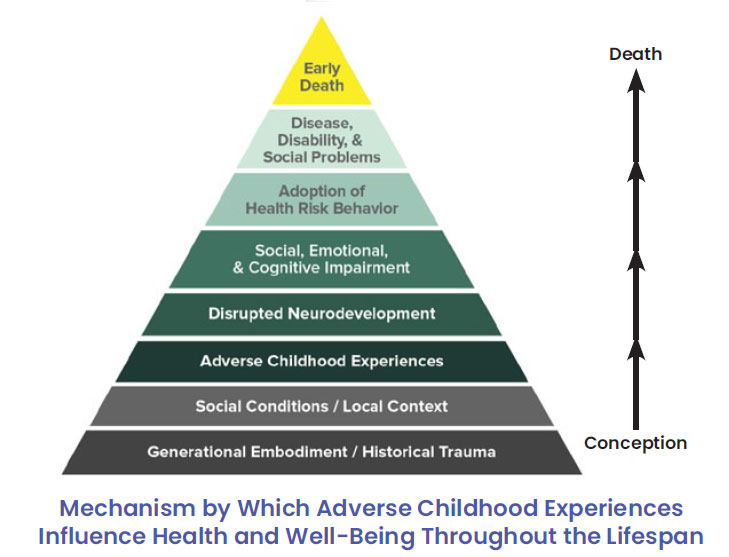 Adverse childhood experiences (ACEs) can harm a child’s developing brain and nervous system, leading to lifelong mental disorders and disabilities. These experiences are often the result of social injustice, and include:
Adverse childhood experiences (ACEs) can harm a child’s developing brain and nervous system, leading to lifelong mental disorders and disabilities. These experiences are often the result of social injustice, and include:
- Families not having enough money to pay for basic living expenses (food, housing, clothing, etc.)
- The death of a parent or guardian
- Children witnessing or being victims of violence in their neighborhood
- Living with someone who is mentally ill, suicidal or severely depressed
- Living with someone with a substance abuse disorder relating to alcohol or drugs
We need look no further than the daily headlines to know that across Maryland, from urban to rural communities, children experience these and other related stressors on a daily basis, and often go on to develop lifelong trauma that may never be addressed. The more adverse experiences in a child’s life, the greater the likelihood that the child will develop a nervous system disorder such as depression, a developmental delay, anxiety, poor academic performance, substance abuse, violence or suicide.
The exact mechanism by which social injustice affects a child’s health is currently unknown, but because Kennedy Krieger is treating patients right now for trauma caused by these situations, and because it employs leading experts in this field, it has the expertise, data and patient population necessary to learn more, and to develop new, more effective, evidence-based treatments.
